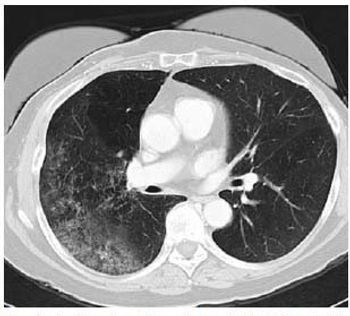
Low-dose CT screening for lung cancer reduces lung cancer deaths, a benefit that outweighs the risk of overdiagnosis.

Low-dose CT screening for lung cancer reduces lung cancer deaths, a benefit that outweighs the risk of overdiagnosis.

CHICAGO - Coronary CT angiography reveals similarities between coronary disease and cardiovascular risk among both men and women.

Using ultrasound as first-line imaging for suspected pediatric appendicitis limits radiation exposure to patients without compromising diagnosis and patient outcome.

The RNSA and the Regenstreif Institute are working together to unify CT procedure names, many of which differ Radlex and LOINC terminology.

Children who underwent CT scans to evaluate for appendicitis at a dedicated children’s hospital were exposed to far less radiation.

CT colonographies that do not require bowel cleansing are almost as effective as traditional colonoscopies and may increase patient compliance for screening.

PET with [11C]PiB may help clinicians detect amyloid deposits in patients who have sustained traumatic brain injuries.

PET-CT with the radioactive tracer 18F-NaF PET-CT helps clinicians detect ruptured and high-risk coronary plaques.

The American Society of Clinical Oncology includes PET and PET-CT overuse in list of Top Five procedures to avoid when clinical evidence is lacking.

Reconstructed half-dose CT perfusion imaging and iterative reconstruction produce comparable diagnostic image quality to standard dose.

PET imaging helps clinicians see elevated NK1 receptors, demonstrating the pain process in tennis elbow.

Low-dose CT lung cancer screening detects more early cancers in at-risk patients than radiography, but with lower positive predictive value.

Limited-sequence CT scans reduce exposure in children with hydrocephalus who have frequent scans, but still gather adequate diagnostic data.

Using split-bolus spectral multi-detector CT for suspected pancreatic tumor provides better, lower-exposure results than standard protocols.

Non-invasive CT angiography effectively detects cerebral aneurysms and should be considered for first-line imaging.

Canadian researchers developed a tool to use with low-dose CT screening that accurately estimates the probability of lung nodule malignancies.

Researchers determined radiologic findings among humans with influenza A H7N9.

Patients who undergo head and neck CTs have higher risk of developing cataracts than those never exposed to the procedure.

Observing children with minor blunt head trauma longer can help avoid unnecessary CT scans.

Radiation given during CT as part of whole-body PET/CT exams can be safely reduced without comprising image quality.

Higher-quality scans means radiologists are detecting more incidental findings. But how and when should they be reported and recommended for follow-up?

Despite the availability of clinical guidelines for optimal spine care for back pain patients, many unnecessary diagnostic imaging tests are being performed.

18F-FDG PET/CT can better assess bone marrow involvement in patients with newly diagnosed diffuse large B-cell lymphoma than can standard bone biopsy.

Web-based quality control system results in significantly fewer common image quality errors radiographs, CTs and MRIs.

Asymptomatic people at high-risk for lung cancer should undergo annual screening with low-dose CT, says USPSTF.